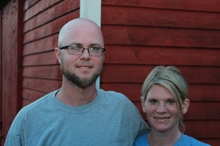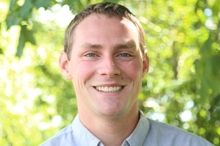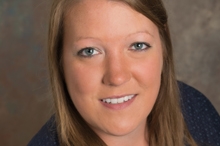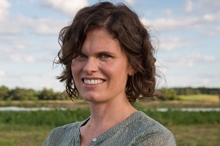Latest News
Nominate a White House Champion of Change for Disability Employment
Posted by on September 2, 2014 at 2:09 PM ESTPeople with disabilities, including significant disabilities, have the skills and talent to make meaningful contributions within America’s workplaces. Advancing employment opportunities and expectations for people with disabilities strengthens not only our economy, but also our society. It creates a more inclusive America where people with disabilities benefit from the intrinsic value of work and develop pride in knowing that they too play a role in the growth and success of our Nation. This Administration has worked steadfastly to address the persistent barriers to employment for people with disabilities and shift the conversation about disability employment from one focused on whether people with disabilities can work, to one more aptly focused on what we can do to ensure that people with disabilities are given the chance to succeed in our nation’s workforce and lift themselves into the middle class and beyond.
While the President will continue to do everything he can to increase the employment rates of people with disabilities, we know efforts to spur hiring at the state and local levels – by small business owners, large companies, philanthropic organizations and self-employed entrepreneurs often have the most impact. The leaders who are creating change know that people with disabilities are an important part of the American workforce. Every day, these individuals are stepping up in big ways in our communities to make sure that all Americans with disabilities have equal opportunities and a pathway to the middle class.
Today, we’re asking you to help us identify and honor innovators who are breaking down barriers to the middle class by providing employment opportunities for workers with disabilities, including workers with significant disabilities. These extraordinary leaders will be invited to the White House to celebrate their accomplishments and showcase their actions to ensure that individuals with significant disabilities have a fair shot at succeeding in good jobs and careers. Please nominate a Champion of Change by midnight on Sunday, September 14, 2014. We are seeking Champions who reflect the diversity of our nation, including diversity of types/visibility of disabilities and veterans with disabilities. Nominees may include the following types of individuals:
- Small business owners who have lead efforts to hire workers with disabilities, including workers with significant disabilities, and who have hired and retained one or more workers with significant disabilities and a worker(s) who are helping to build that business while gaining middle class security.
- Managers within large or medium sized employers who have developed effective initiatives for the hiring, retention and/or promotion of people with disabilities, including workers with significant disabilities.
- Entrepreneurs with significant disabilities who have established successful businesses and are now employing others in a successful venture.
- Leader within companies or organizations who have disclosed hidden disabilities and have initiated efforts to educate others about employment of people with disabilities.
- Public/private partnerships between employers and a state or local governments, colleges, foundations, or other entities that have developed effective collaborative initiatives focused on increasing competitive integrated employment for people with disabilities, including people with significant disabilities.
Click on the link below to submit your nomination (be sure to choose Disability Employment in the "Theme of Service" field of the nomination form).
Nominate a Disability Employment Champion of Change
We are looking forward to hosting this event and to highlighting the great work communities across the country are doing to advance the employment of people with disabilities
Taryn Williams is an Associate Director in the Office of Public Engagement.
Learn more about DisabilitiesReach Higher: Improving Education for Hispanics
Posted by on August 25, 2014 at 1:04 PM ESTThe following Op-Ed by Eric Waldo was published in La Opinión, and can be read in Spanish HERE.
The future of our nation is strongly linked to the educational success of the Hispanic community. Hispanics are the largest, youngest and fastest growing minority group that will represent 70 percent of population growth in our country between 2015 and 2060, and for that reason, it is crucial to invest in the educational future of Hispanic youth right now. During the first term of the Obama administration, the number of Hispanics enrolled in college reached a record high and has grown by more than 1.1 million additional students.
Fortunately, we have made some significant progress in the last decade - the Hispanic dropout rate has fallen by more than half from 28% in 2000 to less than 13% in 2012 and is still improving. But there is more to do.
Continuing with the progress we have made, the White House recently announced our next "College Opportunity Summit at the White House" on December 4 to continue the dialogue on the importance of expanding access to college. We also announced recent educational measures, such as 14 new commitments from community colleges to strengthen college preparation for students who lack adequate academic preparation and many more commitments in progress.
First Lady Michelle Obama also works to expand college opportunities with her education initiative “Reach Higher” launched this year, which seeks to inspire our youth to take control of their future, encouraging them to continue their secondary school education and obtain a college degree or professional certification.
This summer, The First Lady spoke at the 85th Annual Conference of the League of United Latin American Citizens (LULAC), the largest and oldest Latino civil rights organization for the Latino community in the country centered on issues related to education and civic engagement. In her speech the First Lady highlighted the vital role a good education plays to develop successful individuals and communities. The First Lady stressed that too many Latino students still cannot realize their potential. Although the proportion of Latino students that graduate from high school has recently reached a historic high, it does not yet compare with the level other groups reach. And when it comes to college, regardless of the results of aptitude tests or academic average, Latino students are more likely to leave school without finishing; less than 15 percent of young Latinos age 25 have a university degree, a percentage that is behind their African-American, Anglo-Saxon and Asian counterparts.
The First Lady invited all those present to be inspired by the example of Latino leaders who have dedicated their efforts to improve educational opportunities and fought for the civil rights of the Latino community, as they are a source of support and inspiration for the new generation of young Latinos. Because today in our economy a high school diploma is not enough. Students must reach higher; that is why the First Lady is working to unite the country around President Obama’s "North Star" goal, so that by 2020, the United States once again reaches the highest proportion of college graduates in the world.
Through "Reach Higher" the First Lady is working to ensure that all students are aware that they need to complete their education, exposing students to opportunities for college visits and professional experiences; helping them determine eligibility for financial aid; encouraging the planning of their studies and academic learning during the summer; and supporting school counselors to help students get into college.
All young people who are about to return to class you have to take your education as a personal challenge. Choosing challenging classes, reading stimulating books and making the best effort depends on the students. Therefore, parents and students this year, challenge each other to reach higher. And keep an eye on college for a better future. Your country is counting on you.
Eric Waldo is the Executive Director of the First Lady’s “Reach Higher” initiative.
A Civil Rights Breakthrough
Posted by on August 8, 2014 at 9:15 AM ESTEd. note: this blog was originally published on the Office of Personnel Management's Blog. See the original post here.
I love delivering good news. Last week, I had the honor of recapping the Administration’s civil rights accomplishments to the National Gay and Lesbian Chamber of Commerce’s annual meeting in Las Vegas.
The chamber’s annual meeting was sold out. I stopped in to talk to them about what a great week we had just had. It had started with President Obama signing the Executive Order that makes clear that Federal employees and Federal contractors can come to work each and every day without fear of discrimination based on their sexual orientation or gender identity.
The week ended with the release of OPM’s update of the Title V discrimination regulations. These new rules make it crystal clear that discrimination on the basis of gender identity is a form of sex discrimination and is against the law.
I think about how far we’ve come. “Don’t Ask, Don’t Tell” has been repealed. We ended the legal defense of the Defense of Marriage Act. The Supreme Court ruled in United States vs. Windsor that the Federal government must recognize the legal marriages of same-sex couples. The President signed historic hate crimes legislation into law. The Affordable Care Act has expanded access to health coverage, and in the process we addressed LGBT health care disparities.
But this conversation is about more than policy fixes and court decisions and legislation. What we are witnessing is a sea change in the way the United States of America treats lesbian, gay, bisexual and transgender Americans.
This is personal. This year we celebrate the 50th Anniversary of the Civil Rights Act of 1965. What we have done under this President is a defining civil rights accomplishment of this generation.
As director of OPM, I am so proud of the work that our employees do every day to make sure that our LGBT brothers and sisters are not denied access to health, retirement or life insurance benefits or the Family and Medical Leave Act simply because of who they are and who they love.
I know we have more work to do. As the President said in his proclamation declaring June LGBT Pride Month: “We celebrate victories that have affirmed freedom and fairness, and we recommit ourselves to completing the work that remains." But we sure have made a great start!
Katherine Archuleta is the Director of the Office of Personnel Management.
Growing a Legacy
Posted by on August 4, 2014 at 3:55 PM EST
Ryan and Tiffany Batalden are being honored as a Future of American Agriculture Champions of Change.
It is an honor for us to be selected White House Future of American Agriculture Champions of Change. It is particularly appropriate that the White House is recognizing people out in the countryside who are thinking long and hard about the "future of American agriculture." There are many of us who see great opportunities in agriculture, but also recognize some of the significant barriers beginning farmers face if they are to get established successfully on the land.
Overcoming these barriers will require recognition on the part of all of us that diverse family farms play a key role in the economic, environmental and even social health of our communities. On our farm here in Southwestern Minnesota, we constantly ask the question, "What will be your farm’s legacy?" We often think of our legacy as related to our farm's financial success. Our legacy will show how we were able to weather hard times -- floods, droughts, bad weather, low prices, pests, weeds, changes in production methods, and other enormous challenges. Our legacy will show that not only did our farm survive, it prospered. Maybe it even grew in numbers of acres or livestock.
These are all important parts of our legacies. But what is our legacy in relation to our community? What is our legacy in relation to all of those pieces of our community that make it the place we love, and make it what it is? What is the legacy we leave for those who wish to move to or live in our area? What is the legacy we want to leave for the next generation of farmers?
We were able to farm for two simple reasons. Reason number one: our family supported us. However, the family farm was not big enough to support two families, so we had to find land to rent. And so the other reason we were able to farm was because of three landowners who valued helping a young farmer as much as they valued getting "top dollar." In return, we have treated their land with the care and respect we would as if we owned it. Because of this, and because we raise crops for specialty markets, these landowners have been rewarded financially as well.
This is just one small example of landowners letting their values guide their decision making, and benefitting a beginning farm family in the process. When land changes hands, is it done in a way that reflects a community's values? Without creative transition solutions, where will the next generation of farmers worship, shop, and send their kids to school? Will your neighbor's farm become a home for a new family of entrepreneurs, or simply one more field to till for a larger operation in the area? What are some ways we can show our values and ensure our legacy -- not just financially, but also in other ways -- when we transition our farm to the next generation?
Such questions can be hard to answer. However, as groups like the Land Stewardship Project have been able to show, there is a growing number of creative ways that retiring farmers have found to transition their land in ways that ensure that their farm's financial, family, and community legacy is preserved. If we look hard enough, we can all find ways to ensure our legacies in ways that truly reflect our values.
Ryan and Tiffany Batalden are fifth generation beginning farmers in Cottonwood County, Minnesota. Ryan serves on the Land Stewardship Project's Land Access Committee.
Feeding Our Neighbors and the World
Posted by on August 4, 2014 at 3:49 PM EST
Quint Pottinger is being honored as a Future of American Agriculture Champion of Change.
When I was three my favorite thing to do was to go riding in the combine with my dad cutting soybeans. When I think back, I can still feel that warm fall setting sun beaming through the cab. I can smell the soybean dust and see the header reel rotate bringing the crop in. That is when I decided I wanted to “spend my life doing what dad does.” My love for farming grew as my responsibilities grew. My love for agriculture began when my high school agriculture teacher opened my eyes about the diverse industry. She challenged me to think outside the box and to explore opportunities outside of my comfort zone. It was there that my passion for agriculture began leading me to attend the University of Kentucky.
One of my professional goals, as well as personal passions, is the need to create solutions for the growing world hunger. When I began to think about how I could be a driving force in creating this change, I turned to my wife for new consumer perspective. Together we decided to build a farm brand to make the American farmer real for our customers. Affinity Farms was established with the initial goal to grow soybeans, corn, and vegetables. By marketing our corn to local distilleries and vegetables at the farmers market, we opened a dialog with our consumers and community about the American agriculture industry.
The American consumer wants to know their farmer and they want to know that the farmer is using safe and sustainable farming practices. By creating this open dialogue, we connect with our consumers. While this is a very important initiative on our farm, it is only one of many goals that my wife and I have set out to accomplish. The world’s population is growing at a quick pace. We cannot and will not feed the world in 2050 with 2015 farming practices. Using cutting edge technology and biotechnology, we can achieve the increased production that will pull us out of this world food dilemma.
Technology is a big piece of the puzzle, but it is not the only piece. Three years ago I had the opportunity to travel to the Panama Canal and to several Colombian soybean buyers and processors. This visit allowed me to see how American soybeans are being used to make fishmeal healthier, higher in protein, and decreasing the inputs making it more affordable for consumers. American agriculture and American farmers are making huge investment in infrastructure to help move more food into hungry foreign markets. In January 2014, I traveled to South Africa to learn about the growing need for food and the challenges they have to push food up through the continent. Being an American farmer and seeing the challenges to feed this world, I can tell you that it will not be easy. We have a tough row to hoe.
Farming is something I love. The dirt does not just stain our hands; it runs deep in our blood. I will be resolute in reaching out to my community to put a face on the farmer. I can speak with certainty that the American farmer is meeting the world food crisis head on, and we will feed this world whether it is through our commodities, production education, or infrastructure development.
Quint Pottinger is member of the Kentucky Soybean Association (KSA), sitting on the KSA board in an educational role with the DuPont Young Leader program. He is also serving with the Corn Growers Coalition promoting young family farmers and a member of the Kentucky Agriculture Leadership Program Class X.
Agriculture…Imagine What You Can Do
Posted by on August 4, 2014 at 3:42 PM EST
Pierre Sleiman is being honored as a Future of American Agriculture Champion of Change.
As a little boy, I was always fascinated with science and technology, often preferring to play with wires and circuits rather than other toys. When I was about 15 years old, I discovered an old study on hydroponics (growing plants in water instead of soil) in my dad’s office that had been abandoned. My imagination went wild. What happens when farming goes high-tech? Imagine what you can do…
Today, I am a farmer. However, four years ago neither I nor anyone in my family lineage was a farmer. My undergraduate degree is in computer science and my master’s degree is in business. During a business class in college, we were studying how high-tech companies are decentralizing. Again, agriculture came to mind. Most agricultural production in America is concentrated in relatively small regions and then trucked across the country. What is holding us back from putting small local farms in every city? What are the challenges that can be turned into opportunities? And thus, Go Green Agriculture was born.
As I learned more about agriculture, I quickly realized that farmers today are facing big challenges in supplying a rapidly growing population. Challenges including weather, diminishing arable farmland, pests, disease, food security, and, of course, limited water and other natural resources. Some other statistics also impacted me; for example, the average age of farmers has been rising over the past decades. Today the average farmer is in their late 50s. This tells me that there are few new farmers entering the industry. Let’s face it; the average kid doesn’t think farming is a “cool” profession.
As a person who loves science, technology, engineering and math, I have discovered that farming is the new frontier of untapped potential in these fields. Chemistry, biology, robotics, automation, engineering and computer science are only a few fields that are deeply applicable. From growing food for astronauts in space, producing biofuels that power cars and aircraft, discovering new medical uses for plants, to designing highly productive urban farms in the middle of big cities…the opportunities for creative thinking and innovation are limitless.
The only way to truly exploit the incredible potential of agriculture is to get our youth excited about it. We do not just want agronomy and horticulture college majors to become farmers. We need chemists, engineers, computer scientists, biologists, and more. Interdisciplinary collaboration between diverse groups of people will invigorate creative thinking to produce solutions to challenges that could otherwise not be solved by looking at a problem from just one perspective. The more diversified the better. I am living proof that a computer scientist can become a successful farmer.
Within Go Green Agriculture, we encourage diversity, creative thinking, and ideas from every employee. Externally, I teach and inspire youth, in all fields of study, about the exciting opportunities for creativity and innovation in agriculture. Imagine what you could do…
Pierre Sleiman is the founder and CEO of Go Green Agriculture, an innovative company that grows produce inside high-tech greenhouses using hydroponics. Go Green’s mission is to setup greenhouses across the country to provide local jobs and fresh, delicious, and nutritious produce to the community.
Producing Future Agriculture Business Owners - with a Side of Vanilla Ice Cream
Posted by on August 4, 2014 at 3:39 PM EST
Melinda Litvinas is being honored as a Future of American Agriculture Champion of Change.
I am truly honored to be named a Champion of Change for the Future of American Agriculture. Although I grew up in urban Philadelphia, I am a very enthusiastic supporter of any farm market, local foods, and slow food movements, even from a young age. Growing up, I discovered the importance of food not only as a creative outlet but as a field that is ever changing with new challenges every day - especially the challenge of how to feed our population while conserving our natural resources.
As I finished college at Syracuse University, my two main career goals evolved: to operate a successful business and to leave my mark in the food world in positive and influential way. I worked many positions in the food service and culinary management field until I discovered the UDairy Creamery Manager's position in 2010. I knew if I was hired, not only could I fill the University of Delaware's needs for an operations manager but also fulfill my personal goals. As a former food science teaching assistant, I also I found the possibility of teaching students again to be most appealing.
The University of Delaware’s College of Agriculture and Natural Resources has had an operating dairy farm for decades prior to the development of the UDairy Creamery. In 2008, a group of four students and one professor wrote and proposed a business plan to open a creamery in order to help subsidize the costs incurred by operating a research dairy farm. The need to make ends meet in the dairy industry has been an ever-growing issue – and many dairy farmers turn to value-added products, like cheese or dairy, to help diversify their income streams. We received an internal grant from the University called a Unidel Grant, in 2009 for half the cost of the Creamery. The remainder was funded by private donations. I was hired in late 2010 and we opened 6 months later in April of 2011.
In June of 2013, I worked with student interns to partner with the Horn Program for Entrepreneurship within the University’s Lerner School of Business to become the first University with an ice cream truck. The “Moo Mobile” was purchased not only to serve other parts of campus and events, but as a teaching tool for Agriculture and Entrepreneurship students to run a “business for a day.” So far, we have been involved in three courses and several high school outreach programs within Delaware.
The last three years have been a whirlwind of ice cream production, growing store sales, and hundreds of events in which we have been able to share our sustainable story with the University and outside communities. As a non-profit business, all proceeds from ice cream sales go directly to supporting the dairy farm and its teaching programs. I could pride myself in the amount of ice cream we produce or probably the world record amount of homemade waffle cones we have sold or how successful the Creamery has become while I was the manager for three years. It is, however, not what I feel most proud of.
Since 2010, I have had the honor to teach, mentor and work very hard with 24 student interns and over 95 student employees. These students applied to the Creamery not just for an ice cream job but to gain hands on experience in the agriculture and entrepreneurship fields. My students have become food scientists, veterinarians, farmers, small business owners, creamery managers and creamery owners.
I am currently working on plans to start a cheese manufacturing component to the UDairy Creamery, which will become the basis of a new pilot plant. I do hope to expand the Creamery into a full dairy pasteurization plant with an extensive product line. The food science industry is on a steady incline as our enrollment of food science students continues to grow. As the Creamery expands, the hands on experience in the areas in dairy, food, and animal science also expand. I pride myself in producing workforce-ready graduates that will continue to battle and solve the challenges of the food industry today. The students are the real product of the Creamery.
Melinda Litvinas is the University of Delaware’s UDairy Creamery Manager within the College of Agriculture and Natural Resources providing training, teaching and mentoring in entrepreneurship and agribusiness management to University students and community members.
Bringing Young Americans Back to the Farm
Posted by on August 4, 2014 at 3:36 PM EST
Lindsay Lusher Shute is being honored as a Future of American Agriculture Champion of Change.
With record farmland prices, climate instability, and an agricultural economy often working against them, today’s young farmers and ranchers are all Champions of Change. They are taking tremendous personal and financial risks to feed the country and build a healthy food system.
I am proud to count myself among the nation’s new farmers and to represent my peers through the National Young Farmers Coalition (NYFC). I co-founded NYFC in 2010 to represent, mobilize, and engage young farmers to ensure their success. We are shaping a country where young people who are willing to work hard, get trained, and be entrepreneurial can support themselves and their families in farming. Along with strong local networks and farm services, we believe that access to land, capital, and relief from student loan debt are critical to this goal.
The foundation of a successful farm is affordable land. Farmers must be able to pay the mortgage and make a living from the products they grow on the land. When speculation or non-farm uses drive up the price of land beyond this point, farmers and communities suffer. Prime farmland close to markets is paved over or put out of production, and opportunity is sucked dry from rural places where land is the most valuable resource. This trend is not new. But now, more than ever, we cannot afford to let it continue. With more than two-thirds of America’s farmland set to change hands in the next two decades, we risk losing the land that our next generation of farmers need.
To address this threat, NYFC is partnering with land trusts nationally to conserve land using “working farm” easements that ensure family farmers will always own and farm protected land. Under these new easements, farm families can pass down their land to future generations of growers and have the peace of mind that their lifetime of work will endure. Federal funding and leadership is vital to these easements, directly impacting how land is used in our rural communities.
Keeping farmland available to farmers is only one piece of the puzzle, however. In order to afford this land and begin a career in farming, young entrepreneurs need to build equity in their farm business. Coming from non-farm families, many new farmers must begin by leasing land. They need access to cash to make lease payments, as well as to purchase tools, tractors, animals, feed, and infrastructure. When we surveyed 1,000 young and beginning farmers and ranchers in 2011, 78 percent identified access to capital as a critical challenge to getting started.
Since then, we have worked with the USDA’s Farm Service Agency to introduce a new microloan program and change lending rules to improve loan programs for vegetable and livestock producers. These changes have made a significant difference for thousands of farmers, but more needs to be done. Individual Development Accounts and student loan repayment present important opportunities.
Individual Development Accounts (IDAs), or matched savings accounts, were authorized in the 2008 Farm Bill, but have yet to receive federal funding. IDAs help young farmers raise the capital they need to buy a tractor or other major farm purchases while they are in training. These programs have successfully jumpstarted farm businesses in a handful of states, but public investment is required to benefit farmers in all regions.
While access to land and capital are critical to starting a farm business, helping farmers manage student loan debt is likely the most powerful incentive to keep young people farming. As the Higher Education Act is reauthorized, NYFC is looking to incorporate farmers into the definition of the Public Service Loan Forgiveness Program. That means that if you keep farming for ten years or more, you will get some help paying down any remaining student debt.
Bringing Americans back into agriculture is no small feat, and will require champions in many sectors. I am excited to work with President Obama and the USDA to ensure that young people have the land, capital, and relief from student debt that they need to succeed in farm careers.
Lindsey Lusher Shute is the Co-Founder and Executive Director of the National Young Farmers Coalition. Lindsey and her husband also own and manage Hearty Roots Community Farm, a diversified vegetable farm in Clermont, NY.
- &lsaquo previous
- …
- 23
- 24
- 25
- 26
- 27
- 28
- 29
- 30
- 31
- …
- next &rsaquo


Twitter